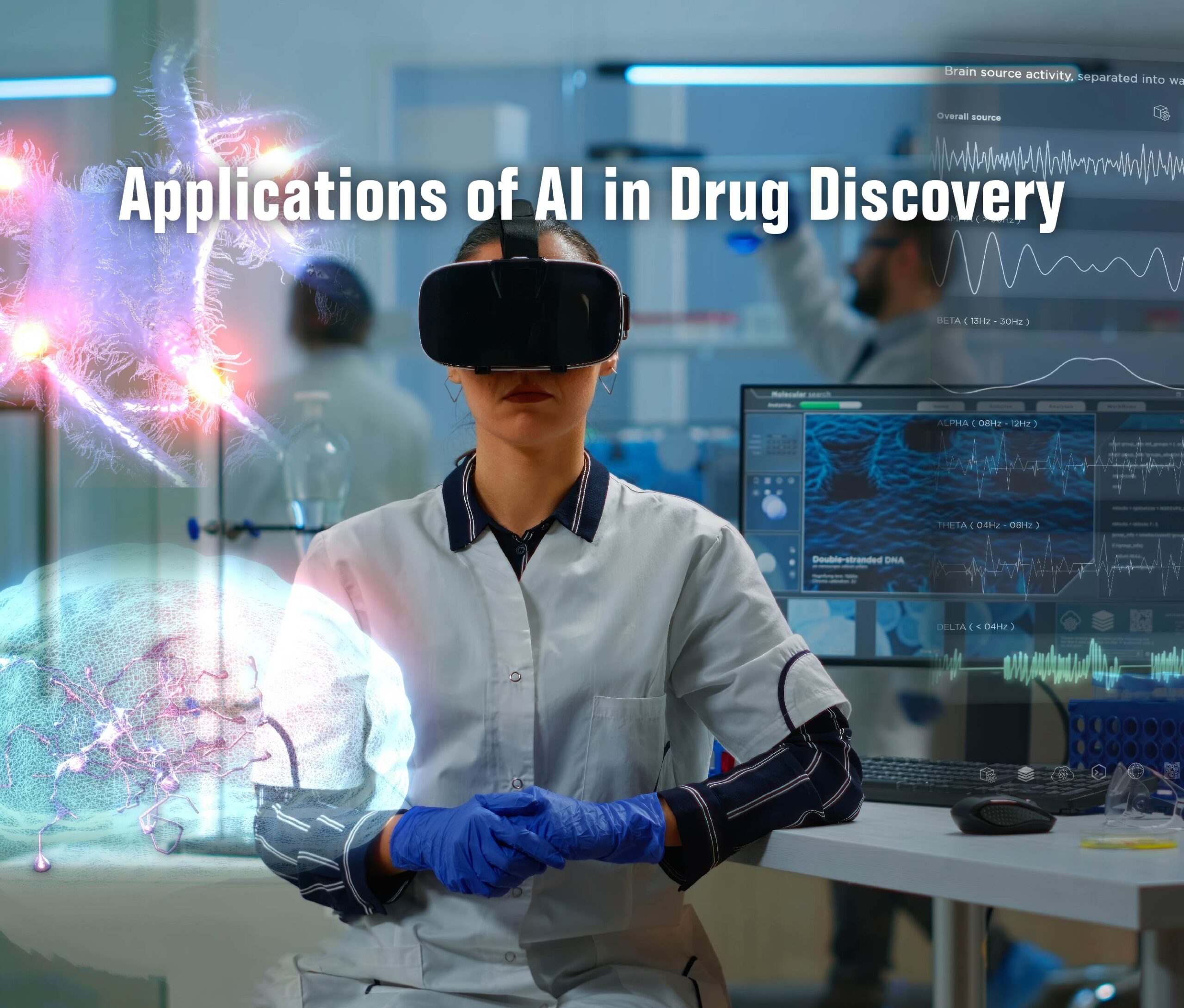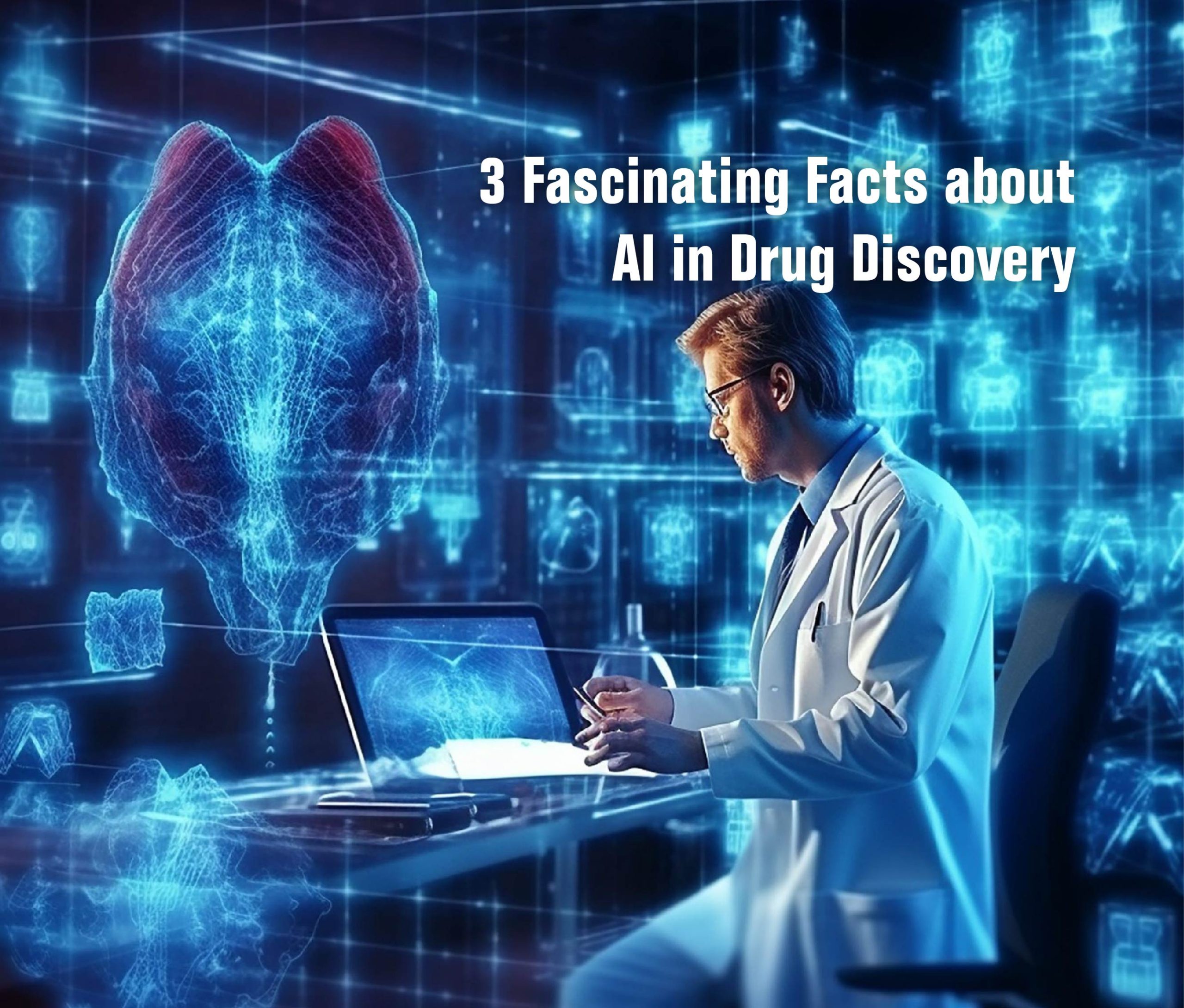Each century witnesses the emergence of a groundbreaking technology, and the 21st century is the era of Artificial Intelligence (AI). Companies and customers just can’t get enough of it and it’s for the right reasons. Despite ongoing concerns about the trajectory of high-tech advancements, AI is gradually transforming every industry, and this includes the impactful role of AI in drug discovery.
Humans are really complicated, and finding new medicines to treat diseases takes a long time—sometimes many years for just one. Can AI make this process faster? Scientists and experts predict so. AI applications are projected to reduce annual US healthcare costs by an estimated USD 150 billion in 2026. Additionally, joint research by Carnegie Mellon University and a German institution reveals that AI in drug discovery can potentially reduce expenses by up to 70%, revolutionizing healthcare.
In this article, we’ll explore how artificial intelligence is transforming healthcare through its powerful applications in drug discovery and development.
Understanding AI in Drug Discovery
Discovering new drugs involves thorough research to find effective treatments for specific diseases. Traditionally, researchers screen molecular libraries to identify molecules binding to disease-related proteins. Recent trends favor structure-based drug design, requiring chemists to design, synthesize, and evaluate compounds.
The challenge lies in uncertainty about effective chemical structures, making drug development resource-intensive and costly. Current data suggests bringing a new drug to market exceeds around $2 billion per therapy. Despite the promise, clinical trials face hurdles, with only 9.6% of candidates succeeding. Experts believe AI in drug discovery can expedite the process and cut costs significantly.
Applications of AI in Drug Discovery
 Now that we have a fair understanding of how AI in drug discovery could potentially transform the healthcare industry, let’s delve into its various applications.
Now that we have a fair understanding of how AI in drug discovery could potentially transform the healthcare industry, let’s delve into its various applications.
1. Target Selection and Validation
- AI analyzes datasets, prioritizing potential molecular targets using deep autoencoder and relief algorithms.
- Utilizes graph-convolutional networks and computer vision models for understanding protein structures.
2. Compound Screening and Lead Optimization
- AI-driven virtual screening identifies lead molecules efficiently from extensive compound databases.
- AI retrosynthesis pathway prediction enhances chemical synthesis planning.
3. Preclinical Studies
- AI predicts dose-response relationships and streamlines toxicology evaluations using the Deeptox Algorithm.
- Deep learning algorithms use transcriptomic data for precise predictions about pharmacological properties.
4. Clinical Trials
- AI tools contribute to disease recognition, gene target identification, and molecular effect prediction.
- Improve medication adherence and enable risk-based monitoring, enhancing efficiency and success rates in clinical trials.
3 Fascinating Facts about AI in Drug Discovery
 Below are the top three fascinating facts about AI in drug discovery:
Below are the top three fascinating facts about AI in drug discovery:
AI will not Replace Scientists
Contrary to fears of replacement, AI is seen as a powerful ally for scientists, boosting efficiency and innovation. Rather than spending significant time on manual tasks, scientists can harness AI to automate these processes, freeing up valuable time for more complex thinking. The synergy of human intuition and machine learning enables scientists to explore ideas that may have been previously unthinkable. In essence, AI acts as a force multiplier, propelling scientific research to new heights by allowing researchers to focus on high-level tasks and groundbreaking hypotheses. It’s a collaborative evolution, where AI and human ingenuity combine to redefine the possibilities of scientific exploration.
AI can Aid in Personalized Drug Delivery
In envisioning the not-so-distant future, health experts highlight the potential of collecting diverse health data from various sources, including wearables, electronic medical records, and research databases. This data, willingly uploaded into a secure central repository, forms the foundation of personalized medicine. The prospect goes beyond identifying suitable drugs; it involves tailoring the right medication for an individual based on precise parameters such as timing, sequence, and dosage. This personalized approach holds the promise of revolutionizing healthcare, offering treatments uniquely crafted for each person’s specific needs and conditions.
AI helps identify new drug targets previously impossible to find
One of the biggest challenges in drug discovery is identifying new targets for drugs. Traditional methods, such as screening large libraries of compounds, are often time-consuming and expensive. AI is able to analyze vast amounts of data, including genetic information, molecular structures, and clinical trial data, to identify new drug targets that were previously overlooked. This can aid the development of new treatments for diseases that were previously thought to be untreatable.
Closing Thoughts
These captivating insights into AI in drug discovery highlight its vast potential to revolutionize the pharmaceutical sector. From facilitating end-to-end drug development to enhancing doctor-patient communication, AI is reshaping our approach to discovering and developing new drugs. The capacity of AI algorithms to analyze extensive datasets and predict molecular properties is transforming the scientific method of drug discovery, expediting the identification of potential drug candidates. With its cost-reducing, efficiency-boosting, and innovation-driving capabilities, AI is poised to play a pivotal role in the future of drug discovery.


